A recent essay (Ergül 2021) suggests that states could choose electors in a way that would effectively assure election of the U.S. President by direct popular vote without formally abolishing the electoral college.
“The power to decide how electors are selected is left to the state legislatures and chosen electors are at the liberty to vote for their desired candidate. The state legislatures can amend their state constitutions in a way that would require choosing electors that would vote according to the national popular vote.”
Without legal expertise on the author’s proposition, it sounds plausible, but unlikely to happen. The majority of states don’t have large metropolitan populations and so would lose in such a system. They would hardly be likely to vote for it.
The really important underlying issue is the author’s and many other peoples’ belief that the only fair way to elect a president is by direct popular vote. Ergül’s system would be a device to overcome the obstacle of the electoral college. The widely held current view about the desirability of direct election of the president was fueled by the election of Donald Trump in 2016 in spite of Hillary Clinton’s greater popular vote. The lopsided nature of the vote between states with populous metropolitan areas and those with more rural populations in the 2020 election further increased tension over the question. I’ll get to Trump later, but first, let’s consider the direct vote problem in more basic terms.
The main argument favoring a raw plebiscite for president is that it gives each person an equal voice. It is “fair” and gives equal weight to voters in large metropolitan areas. However, the stakes in political governance go beyond public opinion, which can be subject to immediate concerns and subjective influences. For example, in the election of 1864, The North was impatient with the bloody Civil War that seemed to drag on without the ability to crush the Confederacy. Abraham Lincoln initially trailed his Democratic opponent, General George B. McClellan in the election campaign of 1864. McClellan had a charismatic persona but had failed as a general and was willing to compromise with the Southern secessionists. The tide of public opinion only turned after Union General Sherman’s victory in Atlanta.
The framers were keenly aware of the risks in having pure popular opinion determine the election of our most powerful political leaders. Besides the electoral college system for determining the winner among candidates for president, the framers’ original provision for electing Senators was by vote of state legislatures, not popular vote. Only Representatives, chosen for the term of two years, were elected by direct vote.
The framers realized that popular mood was liable to be influenced by the charisma of politicians and urgently-felt issues. They wanted a modicum of balance in the election of the president. Let’s look at early presidential governance. Following the precedent of George Washington, the next five presidents followed the principle of appointing government officials based on competence and permanence – not partisan politics (van Riper 1958). A powerful demonstration of the potential downsides of electing a president based on public popularity came with the election of a colorful and strong-willed general, Andrew Jackson, in 1829. Jackson easily defeated the reelection campaign of President John Quincy Adams, one of our best-educated and most visionary political leaders, but who notably lacked the popular touch.
Swept into office through personal charisma, anti-elitism, and the votes of Irish immigrants, Jackson instituted the spoils system that created a turnover in government at presidential elections. It prevented the establishment of effective federal administrative structures during much of the 19th Century – leading to problems still troubling us today. Jackson was an advocate for slavery, directed the shameful uprooting of the Cherokee Indian nation with the “Trail of Tears” forced migration to Oklahoma, and killed the 2nd U.S. National Bank, which precipitated a devastating economic crash. Long respected as a powerful populist, recognition of Jackson’s flaws finally led to plans to remove his image from our $20 bill.
Donald Trump showed the ability of a gifted demagogue to capture people’s imagination and gain high office. While some of his policies are defended as reforms and others are continued by the Biden administration (e.g. China policy) Trump’s increasingly crude and antidemocratic actions brought about intense opposition and impeachment proceedings. Other politicians elected through popular movements might also promote flawed policies based on ideology and urgent concerns. Political polarization is a price we are paying for emotionally-driven rather than more rationally guided politics.
Finally, pure popular vote for president would arguably promote semi-permanent hegemony of populous metropolitan areas in presidential elections, effectively disenfranchising the majority of rural states and areas and smaller towns. This would likely continue current popular disaffection. Would we really be willing to ignore the wisdom of the founders and go this route?
Reference
Ergül, Kardelen, 2021. “Would Forty States Creating Amendments to Their Constitutions to Direct Their Electoral College Votes to the Winner of the National Popular Vote Create a Constitutional Crisis? Academia Letters: https://www.academia.edu/49926659/Would_Forty_States_Creating_Amendments_to_Their_Constitutions_to_Direct_Their_Electoral_College_Votes_to_the_Winner_of_the_National_Popular_Vote_Create_a_Constitutional_Crisis?email_work_card=title
Van Riper, Paul P. 1958. History of the Civil Service: University of Michigan Press
To comment: contact fmanhei1@gmu.edu
